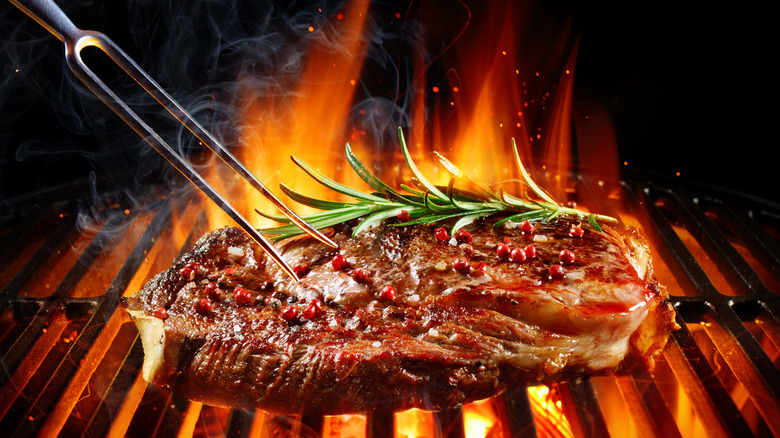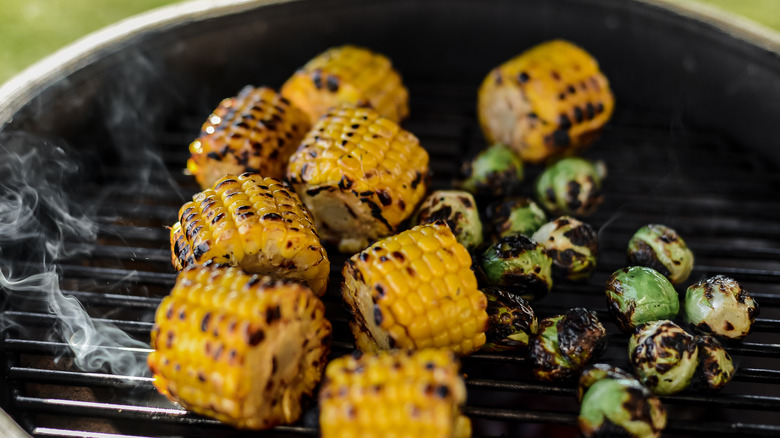The Dangerous Side Effect Of Eating Too Much Grilled Meat
Summer's in full swing, which means that grills everywhere are working overtime to feed the hungry masses. Although grilling can be a healthy option when done right, the cooking method also reportedly hides a dangerous side effect in the form of carcinogens. This is especially problematic when using charcoal grills.
The problem is that cooking muscle meats like beef, poultry, fish, or pork over very high temperatures can cause a pair of chemicals to form, according to Eat This, Not That! These chemicals are polycyclic aromatic hydrocarbons (PAHs) and heterocyclic amines (HCAs). Both are believed to alter DNA in such a way that they increase cancer risk.
The chemicals are formed when cooking meat over extremely high temperatures. The risk is compounded when lots of smoke is produced. So, when fat from the meat falls onto the hot coals and causes extra flames and smoke, it's not a good thing. This is a sign that PAHs are being produced, which then attach to the meat.
It's easy to know whether HCAs are on your food. According to Eat This, Not That!, the meat's charred exterior, formed when high cooking temperatures react with an amino acid called creatine, is the evidence that HCAs are present. Fortunately, it's only a potential problem with meat, as veggies and fruits don't contain creatine. So, grill those pineapple and corn cobs without a care in the world!
How to lower grilling-related risk
One way to sidestep some of the danger, at least, is by switching to a gas grill. It's much easier to control the temperature using propane, even if it doesn't come with the same smoky flavor that charcoal provides.
If you absolutely must grill with charcoal, however, there are some easy ways to lower your risk of potentially cancer-causing carcinogens, according to Eat This, Not That!
First, limit HCA exposure by removing the charred parts of any grilled meat. Obviously, this is easier to do with poultry skin than it is with steak. Second, hone your grilling technique. Keep the temperature as low as possible and make sure to flip the meat often to prevent HCAs from forming.
It's also worth it to reevaluate your meat choices. High-fat foods are more likely to drip fat onto the coals than leaner meats like fish or chicken. So, these options produce fewer PAHs and HCAs than their fattier counterparts.
Lastly, keep fruits and veggies from getting contaminated by wrapping them in foil. That way, if fat drippings from meat fall, at least the produce products will be protected. Cedars-Sinai also suggests an extra layer of caution when cooking meat, by foil-wrapping it as well.

